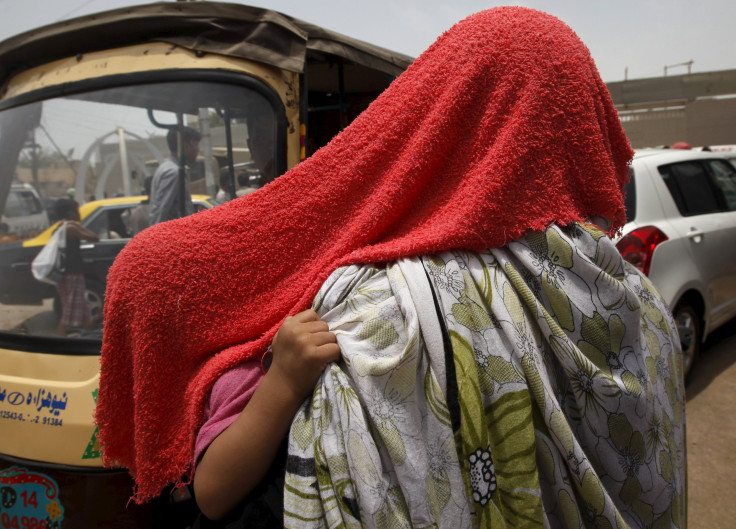Climate Change And Your Health: Chances Are You've Already Experienced The Effects, But Haven't Realized It

Climate change is believed to be connected to human health risks, and chances are you’ve already experienced some of the effects of rising temperatures. Skyrocketing populations of disease-carrying insects and bacteria, extended allergy seasons, and dangerous heat waves have been reported all over the globe, and they may be linked to Earth's changing climate.
Rising Temperatures
In 2014, the Caribbean Islands, Latin America, and the United States saw an outbreak of Chikungunya — a disease that is usually found hundreds of thousands of miles away in Africa and Asia. By April 2015, the World Health Organization attributed over 1,379,788 suspected cases and 191 deaths to a virus that had no business even being in the Western part of the world. And, while global warming cannot be confirmed as the direct cause for the Chikungunya outbreak in the South Atlantic, scientists agree that rising temperatures are likely to accelerate the spread of the virus’ main vessel of transportation: mosquitoes. According to a 2015 report, just a temperature change of a few degrees is enough to extend the active season of these virus-carrying bugs by months and increase their geographical spread by up to 30 percent.
Unfortunately, mosquitos don’t just carry Chikungunya, they are also the main carriers of other “exotic” diseases that are quickly becoming part of the American vernacular, such as dengue fever and the West Nile virus.
Warmer winters have also caused spikes in tick populations, lengthened the amount of time they can survive, and widened their habitat. Scientists have confirmed that these growing tick populations are the direct cause of death for over 60 percent of moose calves in North America, and some suspect they may play a role in increasing incidences of Lyme disease in humans.
We Can’t Dismiss Climate’s Role
It’s not just bugs that are thriving better in these rising temperatures, certain vegetation are reaping the benefits of longer warm seasons, particularly the pesky ragweed. According to The New York Times, in the U.S., the ragweed now blooms for two to three weeks longer than it did only a few decades ago. Chances are you have noticed the results of this extended flowering if you happen to suffer from seasonal allergies. Doctors report that allergy symptoms, such as sneezing and watery eyes, are now lasting well into the fall.
These increasing temperatures are altering the marine environment as well. Rising temperatures off the coast of Alaska allowed the bacteria Vibrio parahaemolyticus to move further north than it normally does, Slate reported. This extended bacterial habitat is believed to have contributed to human food poisoning incidences involving contaminated oysters. Also, warmer temperatures off the coast of Peru in the early 1990s brought an unusually high amount of plankton to the area. Researchers from the University of Colorado have suggested these increases in plankton, created by strange weather patterns, stoked the perfect conditions for the cholera epidemic of 1991 and 1992.
While scientists may be able to link certain health risks to a specific weather event, proving that these risks are a result of climate change is near impossible. “I don’t think we can dismiss the role of climate. But can we say there is a direct causal link? No, we can’t. It’s more complex than that,” Mary H. Hayden, a scientist at the National Center for Atmospheric Research in Boulder, Colo., told The New York Times.
There is one climate factor that most researchers can agree with: Earth’s temperatures are rising, and when temperatures soar, so do death tolls. A heat wave in Pakistan earlier this summer led to more than 3,000 hospitalizations and nearly 700 deaths. While heat wave-related deaths have declined in the U.S. and other first-world countries, it’s not because these areas are cooler, but rather because there is more access to air conditioning and shelter from the elements, NBC News reported.
All The Proof We Need
Although it’s likely we will never have concrete evidence linking increasing temperatures to negative effects on human health, many governments are still taking action to quell human impact on the environment. The European Parliament has pledged an unprecedented $243 billion toward climate projects.
In the U.S., President Barack Obama made it clear that with or without evidence, he believed that the link between atmospheric conditions and illness was clear, and under his leadership the U.S. reduced its greenhouse gas emissions by eight percent. Although he's nearing the end of his term as president, Obama launched a series of administrative actions in April 2015 that “will allow us to better understand, communicate, and reduce the health impacts of climate change” to ensure that America’s environmental efforts continue.



























